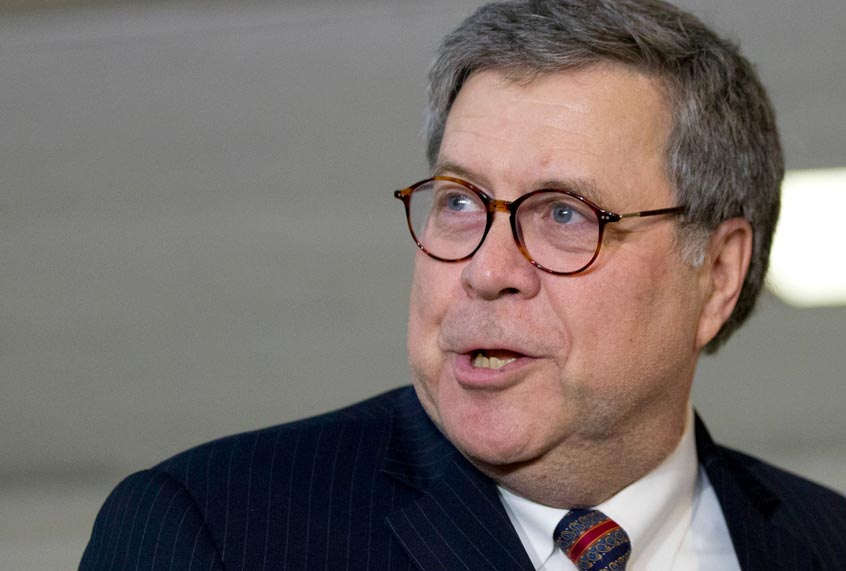If confirmed to replace Jeff Sessions as attorney general, William Barr vows he would allow special counsel Robert Mueller to conclude his investigation into Russian interference in the 2016 election and any alleged collusion or obstruction of justice by President Donald Trump, his campaign or administration. Additionally, Trump’s nominee believes it is “very important” that Congress and the public be informed of Mueller’s findings.
“On my watch, Bob will be allowed to complete his work,” Barr plans to say under oath to Congress, according to a four-paged testimony released Monday – one day before the attorney general nominee’s highly-anticipated confirmation hearing before the Senate Judiciary Committee.
“I believe it is in the best interest of everyone — the president, Congress and, most importantly, the American people — that this matter be resolved by allowing the special counsel to complete his work,” Barr will also say at the start of his testimony. “The country needs a credible resolution of these issues.”
“If confirmed, I will not permit partisan politics, personal interests, or any other improper consideration to interfere with this or any other investigation,” Barr intends to say. “I will follow the special counsel regulations scrupulously and, in good faith and on my watch, Bob will be allowed to complete his work.”
According to Barr, Congress and the public should be “be informed of the results of the special counsel’s work.” The attorney general nominee also is set to pledge a goal to “provide as much transparency as I can consistent with the law” about the results of the investigation. “I can assure you that, where judgments are to be made by me, I will make those judgments based solely on the law and will let no personal, political or other improper interests influence my decision,” Barr will vow.
Barr is scheduled to testify Tuesday at 9:30 a.m. ET before the Senate Judiciary Committee. His confirmation hearings are likely to be dominated by questions about Mueller and how he would handle that inquiry.
Since Trump announced his intention to nominate Barr as attorney general last month, Democratic lawmakers have questioned his previous statements about the special counsel’s investigation. Earlier this year, Barr reportedly sent an “unsolicited memo” to the Justice Department, in which he spoke out against the probe. He said that Mueller’s inquiry into potential obstruction of justice by Trump was based on a “fatally misconceived” theory that would threaten the presidency and the executive branch.
That was not the first time that Barr had publicly criticized the probe, which he could soon oversee. He told The Hill last year that “leaks” from the special counsel’s office “raise questions as to whether there is an agenda” and suggested that Mueller’s team was not politically “balanced,” as some members had made political contributions to Democratic candidates. Notably, Mueller, who is leading the probe, is a member of the Republican Party.
If confirmed, Barr would succeed acting Attorney General Matthew Whitaker, who was appointed by the president to temporarily replace Sessions after the commander-in-chief fired him from his job as the nation’s top law enforcement official. White House officials have contended that Barr would be swiftly appointed to the post by a GOP-controlled Senate.
Trump has vehemently denied all allegations of collusion with Russia during his 2016 presidential campaign and has repeatedly railed against Mueller’s investigation into the matter as a politically-motivated “witch hunt.” The president has also accused Mueller’s team of “viciously telling witnesses to lie about facts,” comparing the probe to the McCarthy period, named for former Sen. Joseph McCarthy (R-Wis.), who accused hundreds of Americans of being communists or communist sympathizers in the 1950s.

